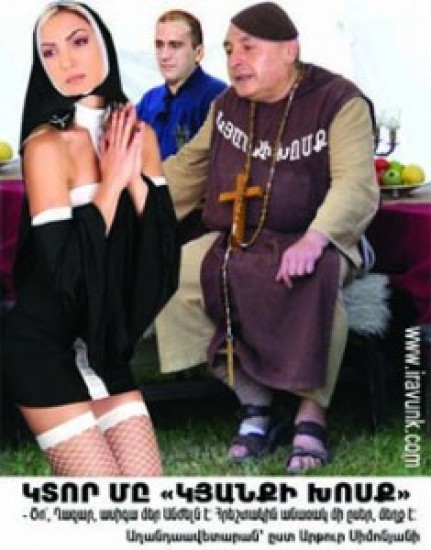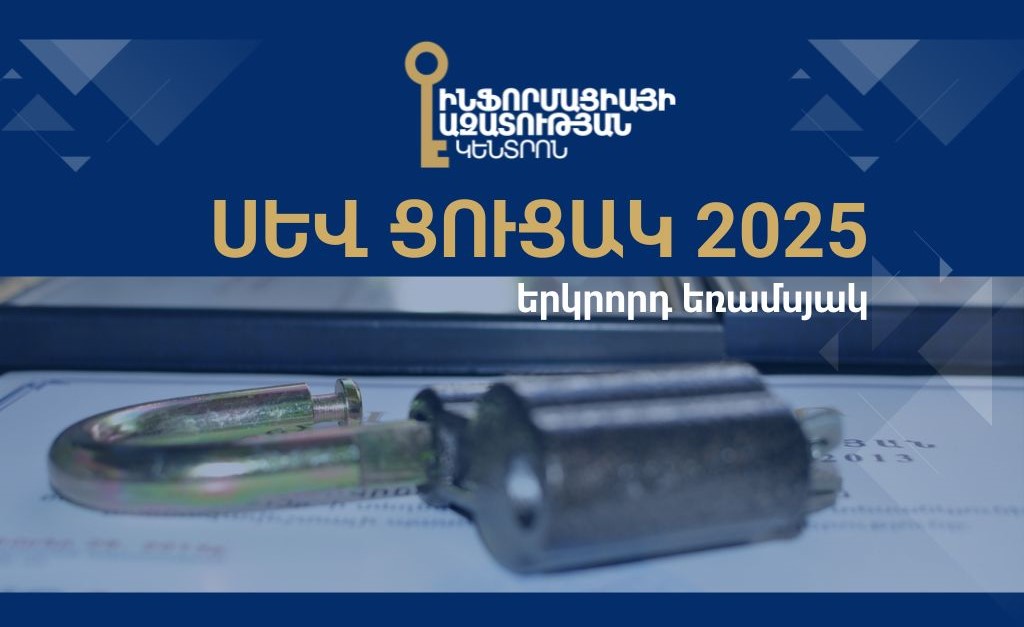On August 14 the Information Disputes Council released its statement about the decision of the first Instance Court of General Jurisdiction of Center and Nork-Marash Administrative districts of Yerevan on the case of “Religious Organization “Word of Life” and the Head of Organisation Arthur Simonyan vs. “Iravunk Hetaqnnutyun” (Law and Investigation) and “Argumenti Nedeli v Armenii” Periodicals.
Announcement
In an open trial on July 31, 2012, the Court of General Jurisdiction of Kentron and Norq-Marash administrative districts in Yerevan has made a decision in case on lawsuit by the “Religious Organization “Word of Life” church” of the Armenian Evangelical Christians and the head of the organization Artur Simonyan vs. “Iravunq hetaqnnutyun” and “Argumenti Nedeli v Armenii” weeklies, represented by “Iravunq Media” LLC that implements information activity, requesting to deny and oblige to apologize for the data defaming the honor and dignity and the good reputation of the organization.
The Council on May 11 has addressed this court dispute, by stating in the conclusion disseminated by the Council that the announcements by the answering media outlets directed to the religious organization lacked factual grounds, and as such, it was not possible to qualify the disputable announcements as fair comment. The Council also believed that the general context of the article, including the continuous and persistent use of the word “talent”, had turned the information speech into an speech that prompts and fuels hatred.
The Council is deeply concerned over the Court’s decision since the Court has not ensured complete and efficient frameworks for judicial test. The Court has not paid attention to the fact that, as the Court has mentioned, having set the goal of covering and criticizing the activities of the religious organization and its leader and thus provoking feedback among the society, which by itself is a legitimate goal, the media outlet has prepared an information material, completely and without reservation, based on a third party public statement, without performing its own examination. As repeatedly mentioned, although such a method of reporting does not contradict the formal requirements of the law, however this method of reporting is challenging from the perspective of journalism ethics and responsible journalism. While performing a judicial test to check the application of the Convention, the Court should have revealed whether the reporter had made his own good-faith examination prior to publishing the disputable materials and whether in this sense it could be said under the particular circumstances that the reporter was freed from the normal reporter responsibility of checking the factual circumstances of his statements. Finally, mentioning about responsible reporting, the Council means not legal but social and professional responsibility frameworks, the first of which suggest that any reporter must demonstrate great cautiousness when the reported material is associated with the social values of all society members, including not only the freedom of expression and voicing the critical opinions of others about cases representing a public interest but also the right to respect everybody’s religious beliefs, and secondly, a reporter’s professional duty of disseminating correct and impartial information.
Information Disputes Council
Shushan Doydoyan (Secretary of the Council) – President of the freedom of Information Center
Boris Navasardyan – President of Yerevan Press Club
Aram Abrahamyan- Chief Editor of Aravot daily
Ara Ghazaryan – Deputy Director of Arni Consult law office
Manana Aslamazan –Director of Alternative Resources in Media program








